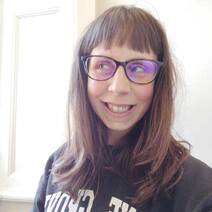|
10/18/2019 Dancing In the Aisle by Ellen Maloney SomeDriftwood CC Dancing in the Aisle There’s a scene in a movie I saw years ago, where a woman with a terminal illness is in a grocery store aisle and is struck by the mundaneness of everyday life. We spend our days in a hypnotising rhythm; wake, eat, work, sleep. Wash, rinse, repeat. Only when something comes crashing down on us do we jolt awake and realise how fragile our existence is, how flimsy the foundations we’ve built our worlds upon really are. It could all come tumbling down at any moment. “Nobody thinks about dying in the supermarket,” the woman’s voice says as she starts dancing in the aisle while the other shoppers in the grocery store remain frozen in time, unaware that she is even there. A surreal moment, capturing the acute isolation the woman feels, and the ability the rest of us have to switch off from something we cannot relate to. My best friend died in the summer of 1997 when I was fourteen years old. We had been childhood friends, then were both hospitalised together for the same illness years later. In hindsight, her death wasn’t entirely unexpected, but I was young and naïve and hopeful. We both wanted desperately to get better- and believed that wanting it would be enough. But she didn’t get better. And I found that the hardest, most unfair part of all. That you could do everything right and still lose. That you could follow all the advice that doctors gave, and follow the guidelines in the self-help manuals, and still it wouldn’t be enough. I found out over the phone. I remember hearing my name and then everything going silent. Then black. I remember hours later trying to eat some cottage cheese in the dining room and it had the texture of sawdust. A new patient asked me if I was okay and I found myself unable to speak. I pushed back from the table and went outside for a cigarette. I lost more than my best friend that summer. I lost my faith in the medical profession. I lost my understanding of the world that if you did everything right then things would turn out okay. Sure, I had been naïve but I was a child; life was meant to be simple. And suddenly it was horribly complicated and painful. “Life changes in the instant. The ordinary instant,” Joan Didion wrote, after her husband died suddenly. Nothing was the same after my friend’s death. I felt a wall of separation between me and everybody else. I still had anorexia, still had all my own difficulties, mired with the grief and pain of losing my best friend. I also had this great distrust and rage at the doctors around me, suddenly seeing them as being powerful but having no basis for their authority. I was at war with myself and at war with everybody around me. I was also grappling with enormous guilt and shame. Part of me still desperately wanted to be well. My best friend and I, we had so many plans for our futures. From day trips to travelling the world to going to university. We had lives to live and we needed to be healthy in order to do that. I owed it to her, if not to myself, to carry the torch forward. The guilt that I was not doing so was paralysing at times. I’d lie awake at night wishing it had been me that had died instead. My friend deserved a chance to live, and here I am just wasting mine. When you have a chronic illness with a high mortality rate, loss accumulates over time. I carry it with me. I carry the guilt and shame of my continuous survival with me. It keeps me separate me from other people. At times, the isolation physically hurts. There are no words for an experience that is brought about by, though, and around loss; there are no words for something that is no longer there. “Nobody thinks about dying in the supermarket.” Until it happens to you, until you are inside of it, until you feel it for yourself, you remain frozen in time while I dance in the aisles. Nothing has been or ever will be the same. I have learned to live with loss, and change with loss, and grow with loss. I am still here. The guilt of survival ebbs and flows. It pushes and paralyses in different measures at different times. I wake up each morning and do a full scan of my body before I move. I start at my head and go all the way down to my toes. I need to reassure myself that I am still here. That I am okay. That I can, in the face of what is no longer here, remain.  Ellen is a writer of both poetry and non-fiction. A recent student of the New School Writers Colony in New York, she's currently working on an essay collection. Previously published in The Guardian, Brave Voices, Prometheus Dreaming, Uncomfortable Revolution, Minnesota League of Poetry, and guest blogger for TED. Comments are closed.
|
AuthorWrite something about yourself. No need to be fancy, just an overview. Archives
April 2024
Categories |

 RSS Feed
RSS Feed
